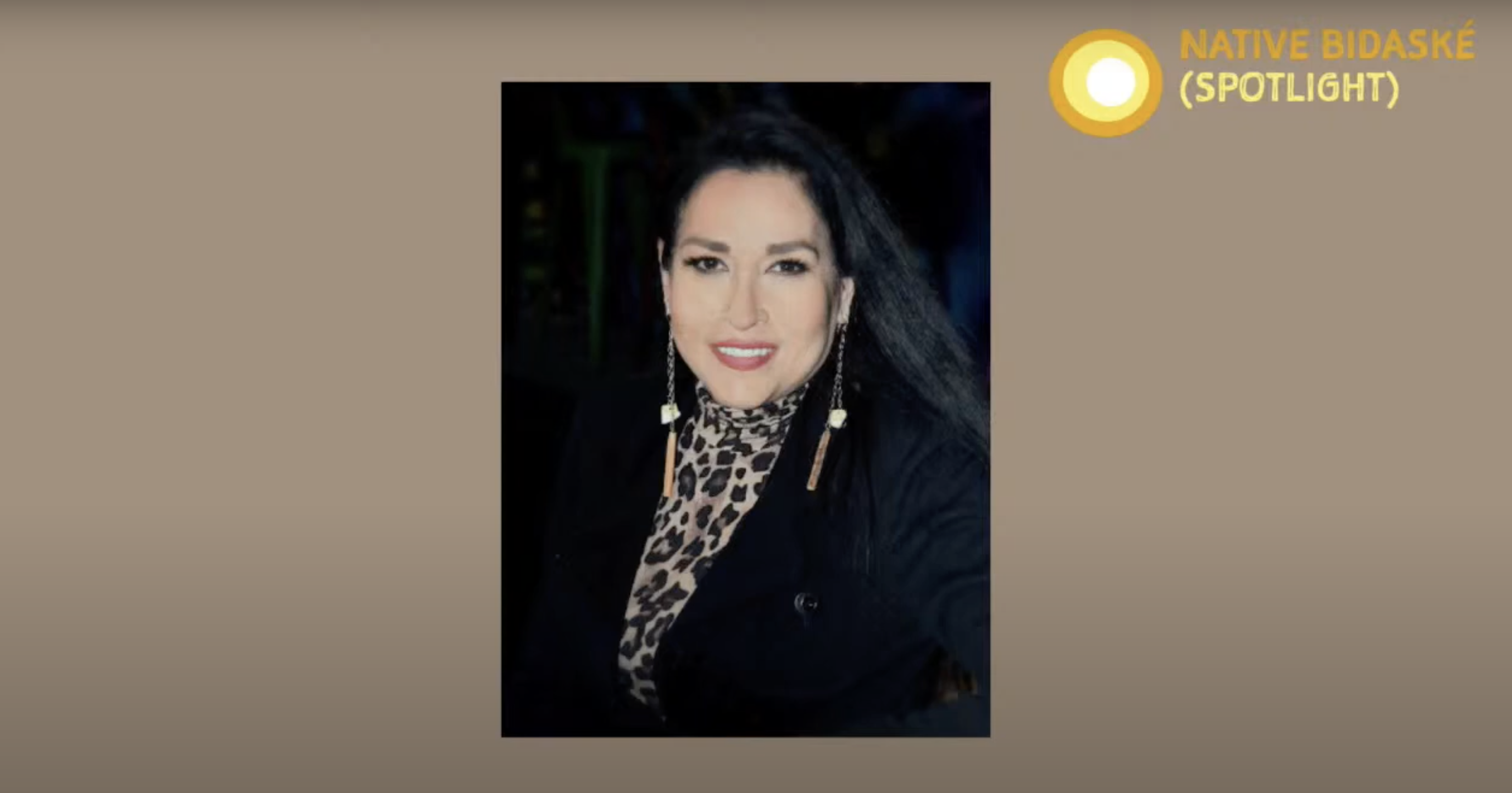
- Details
- By Native News Online Staff
On the most recent episode of Native Bidaské (Spotlight), Native News Online Publisher and Editor Levi Rickert welcomed Emmy award-winning filmmaker Jhane Myers (Blackfeet & Comanche), who spoke about the success of her recent feature film, “Prey.”
The movie — a prequel to the hit Predator movie series — features an Indigenous heroine and was filmed in Canada during the COVID-19 pandemic.
As lead creative producer, Myers was on the set to ensure the authenticity of Native culture depicted in the film.
“It's really important because we're telling our own stories,” Myeers said. “People don't see us in that way. Because usually the story was made, maybe, in somebody's mind, and it's a fantasy, and it's not doesn't have that degree of authenticity. And I always say that ‘Prey’ gets an ‘A’ for authenticity, because we had so many authentic things, even though it was a Predator movie.”
Prey was recently nominated for a Producers Guild Award, a Critics Choice Award and won a Golden Reel Award for Outstanding Achievement in Sound Editing.
Myers also discussed working on “LaDonna Harris: Indian 101” and PBS American Masters 2019 feature on Pulitzer prize winner N. Scott Momaday, “Words from a Bear.”
Myer’s other filmmaking includes working on “1883” (Paramount); “The Wilds” (Amazon); “Monsters of God” (Plan B/TNT); “Magnificent Seven” (MGM/Columbia Pictures); “Wind River” (Weinstein Co.); “The Lone Ranger” (Disney/Jerry Bruckheimer Films); and “Apocalypto” (Icon Ent./Touchstone).
Watch the full interview below.
More Stories Like This
Chickasaw Holiday Art Market Returns to Sulphur on Dec. 6Center for Native Futures Hosts Third Mound Summit on Contemporary Native Arts
Filmmakers Defend ‘You’re No Indian’ After Demand to Halt Screenings
A Native American Heritage Month Playlist You Can Listen to All Year Long
11 Native Actors You Should Know
Help us defend tribal sovereignty.
At Native News Online, our mission is rooted in telling the stories that strengthen sovereignty and uplift Indigenous voices — not just at year’s end, but every single day.
Because of your generosity last year, we were able to keep our reporters on the ground in tribal communities, at national gatherings and in the halls of Congress — covering the issues that matter most to Indian Country: sovereignty, culture, education, health and economic opportunity.
That support sustained us through a tough year in 2025. Now, as we look to the year ahead, we need your help right now to ensure warrior journalism remains strong — reporting that defends tribal sovereignty, amplifies Native truth, and holds power accountable.
 The stakes couldn't be higher. Your support keeps Native voices heard, Native stories told and Native sovereignty defended.
The stakes couldn't be higher. Your support keeps Native voices heard, Native stories told and Native sovereignty defended.
Stand with Warrior Journalism today.
Levi Rickert (Potawatomi), Editor & Publisher


